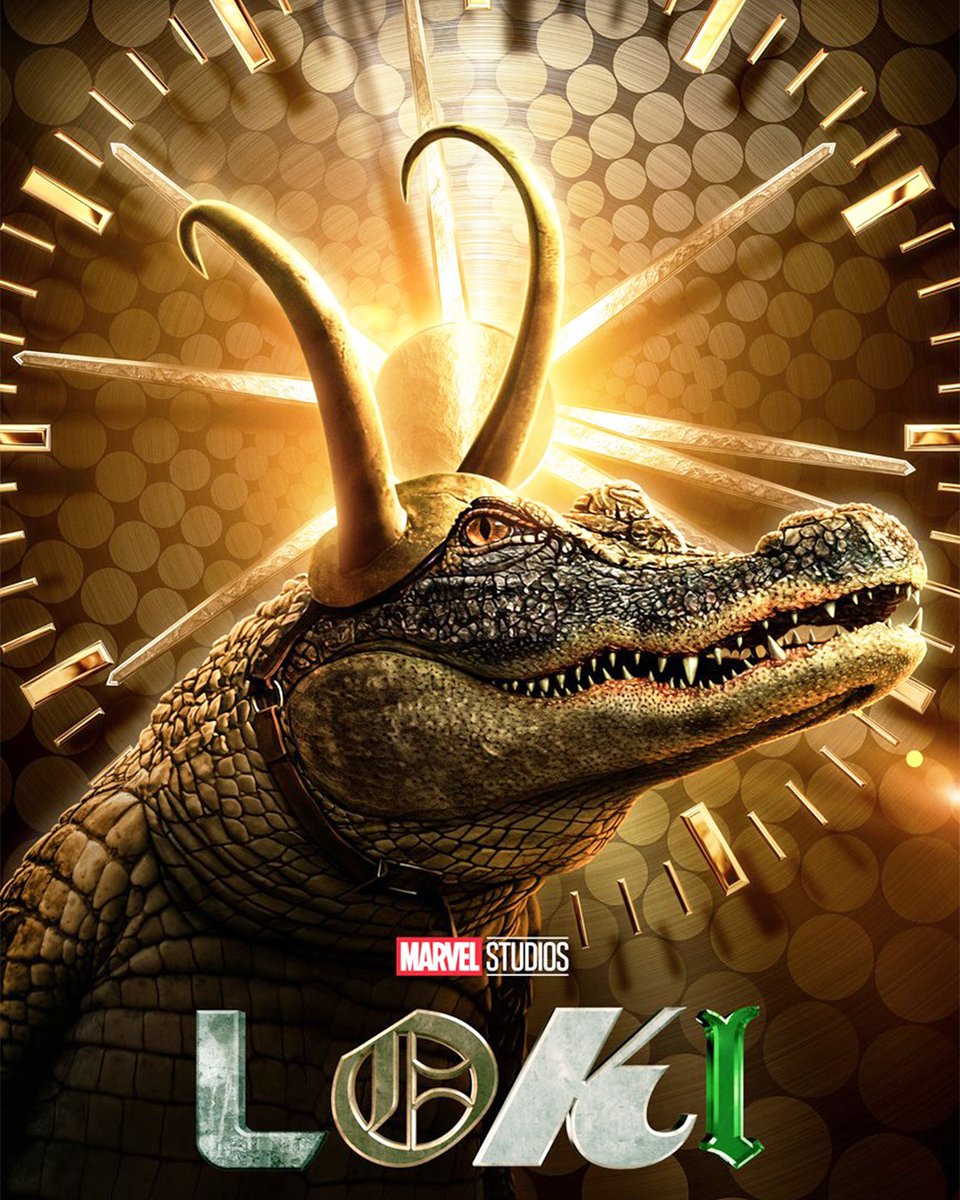Hello Again. It’s been a while since I’d posted here, but that’s because I was finishing up the fourth novel in my Venator Series (coming soon), and also posting a new story on Kindle Vella (available now).
But I’m back now, and this blog will contain major spoilers from season one of the Loki Disney+ series. I’m not going to go too deep on the show itself, as many writers have already done a better job than I could. But I do want to examine the core arc of the show, and of the titular character.
Before I get into the details, I want to say that I kind of loved Loki season one. I would probably rank the MCU Disney+ shows as Loki, WandaVision, and The Falcon And The Winter Soldier. Before watching any of the shows, I would have thought that list would be the exact opposite. But WandaVision and Loki took fresh, new angles that I had not really seen in the MCU before. I found that to be a much more interesting watch than Falcon & Winter Soldier, which I also liked, but seemed more like business-as-usual.
At any rate, here’s your last spoiler warning for Loki.
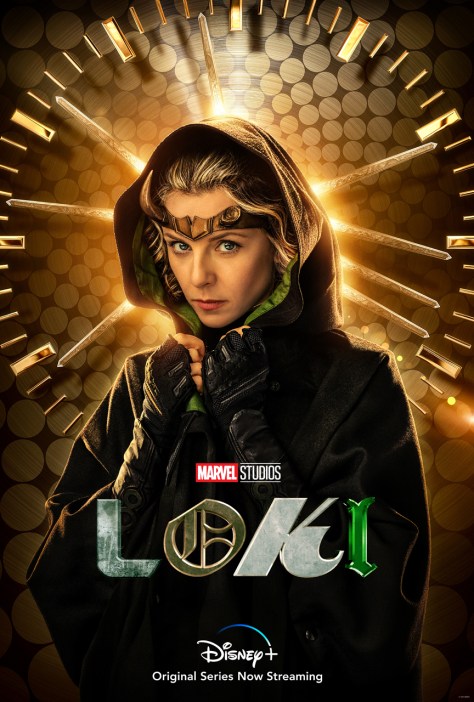
On its broadest level, Loki was about getting the character to a point where he would have been had he not gotten killed by Thanos in Infinity War in a very underwhelming fashion. Since this Loki jumped timelines directly from the invasion of New York at the end of the first Avengers movie, that seemed to be a lot to ask. But taking him into custody in the Time Variance Authority (TVA) where his powers did not work, and showing him a greatest hits reel of “his” life after 2012 got Loki to a state where he was ready to move forward.
At its heart, the show was about allowing Loki to attain a level of self-awareness that then, in-turn, inspired him to become a better man (better god?). To the show’s credit, it managed to do just that in a fairly brief six-episode season. Loki was certainly not able to better himself without a lot of help along the way. Sophia Di Martino’s Sylvie was Loki’s primary companion (and I mean that is a very Doctor Who sense, as that was clearly a large influence here). Her Loki variant had been taken by the TVA as a little girl, spent her entire life on the run, and now had vengeance as her only true compass. She never really got to live a life, while Loki lived one for well over a thousand years. Which made him understand just how selfish, and unwarranted his thirst for power at all costs was.
Owen Wilson’s Moebius made no pretensions about being able to see right through Loki’s usual predilections, which helped Loki see them more clearly himself. Nothing makes it easier to embarrassingly smell your own bullshit than someone calling you out on it without a second of doubt. But Loki came to appreciate Moebius’ candor, and he became the only real friend Loki had probably ever made for himself.
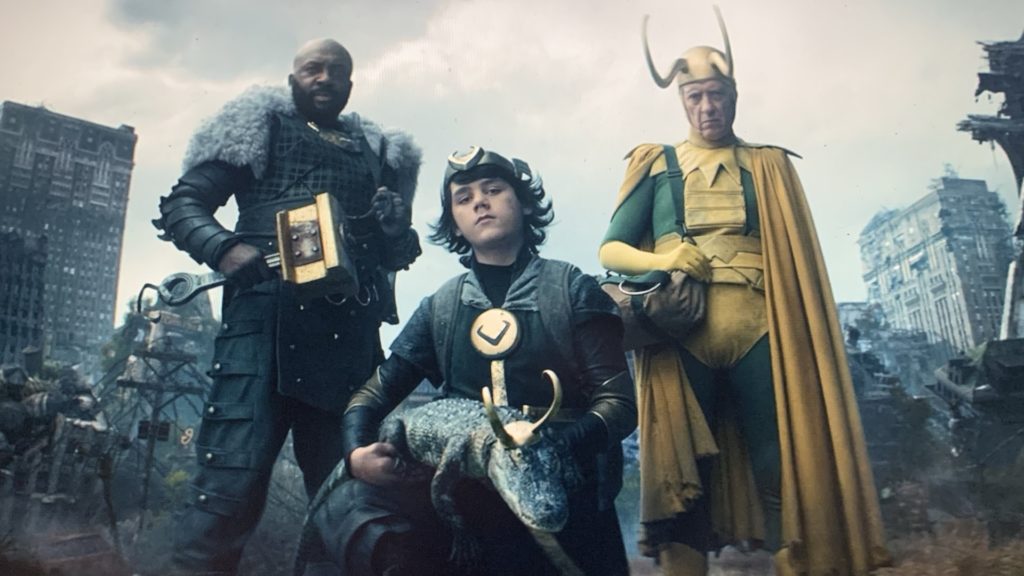
In the void at the end of time, after being pruned and attempted to be fed to a ravenous creature named Alioth, Loki ran into a number of other variants of himself. There was Richard E. Grant’s older, Classic Loki, who escaped Thanos’ clutches, and lived in isolation for hundreds of years, wishing only to escape the vicious cycle of his life. Jack Veal’s Kid Loki was a reflection of what Loki may been been like had he actually succeeded in killing his brother, Thor. That this act was committed by a child who demonstrated more sorrow than any sort of sense of accomplishment, was apt for a childish grudge that Loki had long harbored. And there was Gator Loki, who mainly served as a way to chop down the last of Loki’s ego, when he saw that – in another universe – he was literally nothing more than a reptile. An awesome reptile, but a reptile nonetheless.
True rock bottom came for Loki when Boastful Loki betrayed those who seemed to be his friends in order to be given a throne, which was nothing more than a chair in a broken down bowling alley located in a post-apocalyptic dystopian feeding ground for a giant smoke monster. And then Boastful Loki was promptly betrayed by President Loki (perhaps the closest reflection of our Loki as he was at the start of the series), who was then betrayed by all the other Lokis in his posse. The capper coming when Gator Loki bit off President Loki’s hand, the latter of whom emitted a high-pitched shriek as Gator, Classic, Kid, and Primary Loki made their escape.
A reunion with Sylvie and Moebius, who had also been pruned, set off the endgame. Classic Loki, Kid Loki, and Gator Loki made their way off, as Moebius returned to the TVA to bring it down. That left Loki and Sylvie to work together to get past Alioth, and reach the castle beyond him where the true leader of the TVA resided. Classic Loki returned to save Loki and Sylvie by distracting Alioth with a massive illusion of the kingdom of Asgard. His sacrifice gave the others enough time to enchant Alioth, and make it to their final destination.
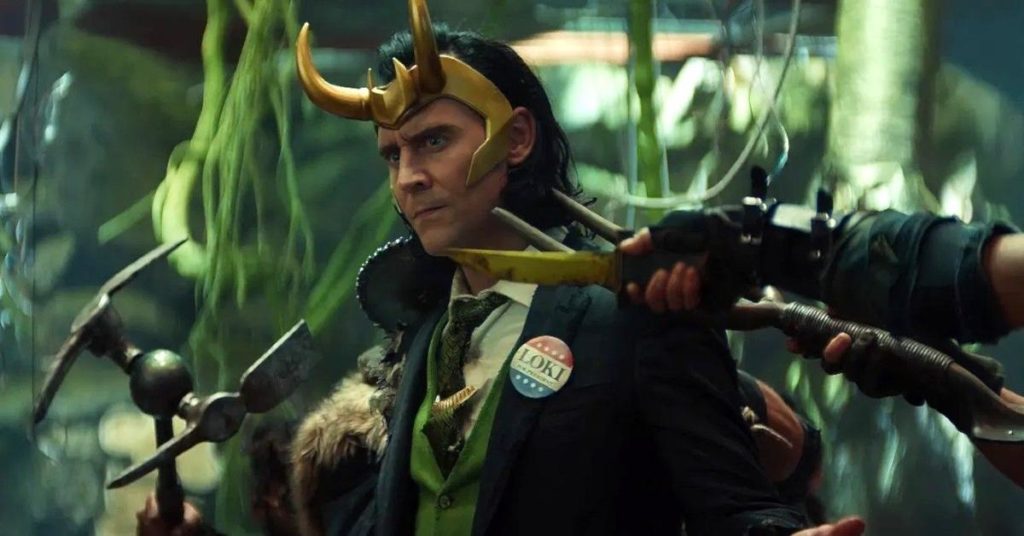
Their final destination was THE final destination as it was, literally, the end of time. Inside the castle the delightful, if somewhat sinister, living cartoon Miss Minutes offered Loki and Sylvie a deal, which they promptly turned down. Once they were past Miss Minutes, they encountered the half-mad and ancient “He Who Remains” (HWR) who is never referred to by any other name but is played by Jonathan Majors, who was already announced as playing Kang The Conqueror. What followed was an honest description of how the TVA came to be, and what its true purpose is.
HWR, and his variants in countless universes, were scientists who each discovered the multiverse in their own way. Many were interested in understanding how the multiverse, and multiple timelines, came to be. But many others were determined to conquer all the universes. This lead to a massive, multiversal war that – we are told – nearly destroyed every universe. But HWR managed to weaponize Alioth, and defeat all of his variants. He then created the TVA to ensure that another Kang variant (or similar threat) would not again rise to threaten the multiverse. The cost of his chosen method is paid in the sacrifice of free will, and the destruction of countless universes and those living therein.
But HWR is tired. And, while he at-first appeared to have omniscient knowledge of all that ever was, or will be, even he reached a point where he does not know what happens next. It is in this moment that he offered Loki and Sylvie another choice: Kill him, and allow the TVA to crumble, or take over the TVA and run it as they see fit. The catch is that, if they choose to kill HWR, there will be nothing stopping his more malevolent variants from rising to resume their conquest of the multiverse.
Loki, who has been changed by his recent experiences, somehow manages to be the most level head in the room. He suggests taking over the TVA, and figuring the rest out later. Sylvie, who has been unable to move past her need for revenge and her inability to trust others, believes the Loki simply wants another throne. They fight, Loki attempts to explain his true intentions, but he is ultimately lured into a trap with a kiss, and pushed through a portal back to the TVA.
Sylvie then fulfills her lifelong goal, and kills HWR. Though HWR’s dying words of “See you soon” come to fruition almost immediately. Back at the TVA, Loki tried to alert Moebius and some other allies of the impending apocalyptic threat. But they don’t even remember who Loki is, and Loki then turns to see a massive statue of Kang The Conqueror looming over the TVA.
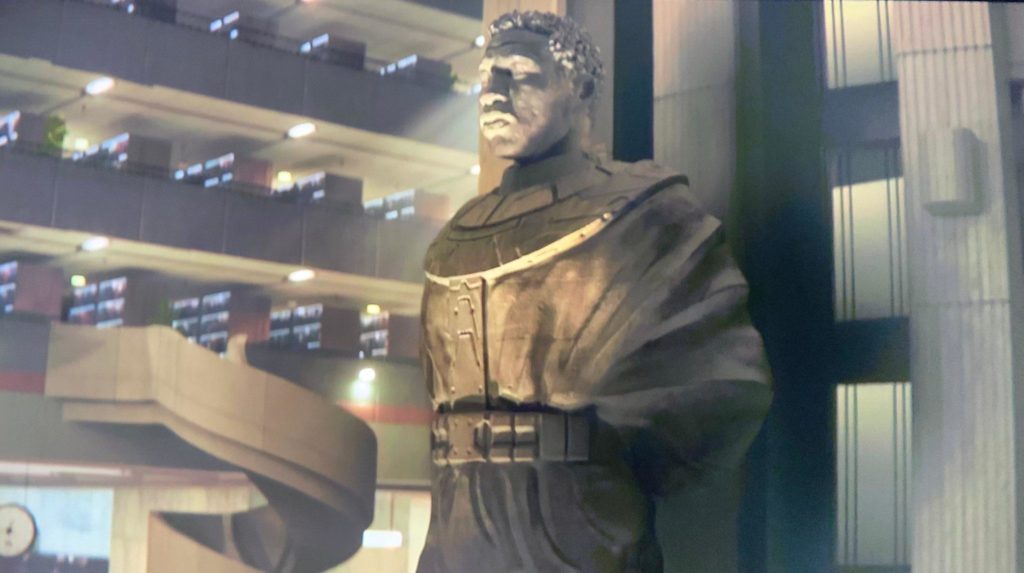
Loki season two was officially announced in a mid-credits tease, and there are some interesting questions to answer, aside from the obvious “How screwed is the multiverse with evil Kang variants unleashed?” We have Sylvie left alone in a castle at the end of time, with no idea of what comes next after claiming her vengeance. I didn’t mention the TVA red tape big wig Ravonna Renslayer (Gugu Mbatha-Raw) fleeing the scene through a portal in search of (what one has to assume) a Kang variant who can get her back high up on the food chain. And we have a desperate Loki and an oblivious Moebius at the TVA, in ground zero of Kang’s kingdom.
But, putting away any future talk for the moment, Tom Hiddleston’s Loki is now the most fully-realized, and complex version of the character we’ve seen since he first appeared in 2011’s Thor. The show looked great, had a great, sci-fi, synthy score, was strongly written, and wonderfully directed. Much like it was with WandaVision and Thor: Ragnarok before it, the Loki series has taken a character who many MCU fans felt had run his or her course, and made that character more interesting than they ever were before. It’s a new trick for the MCU in a bag full of them, and I cannot wait to see what happens next.
